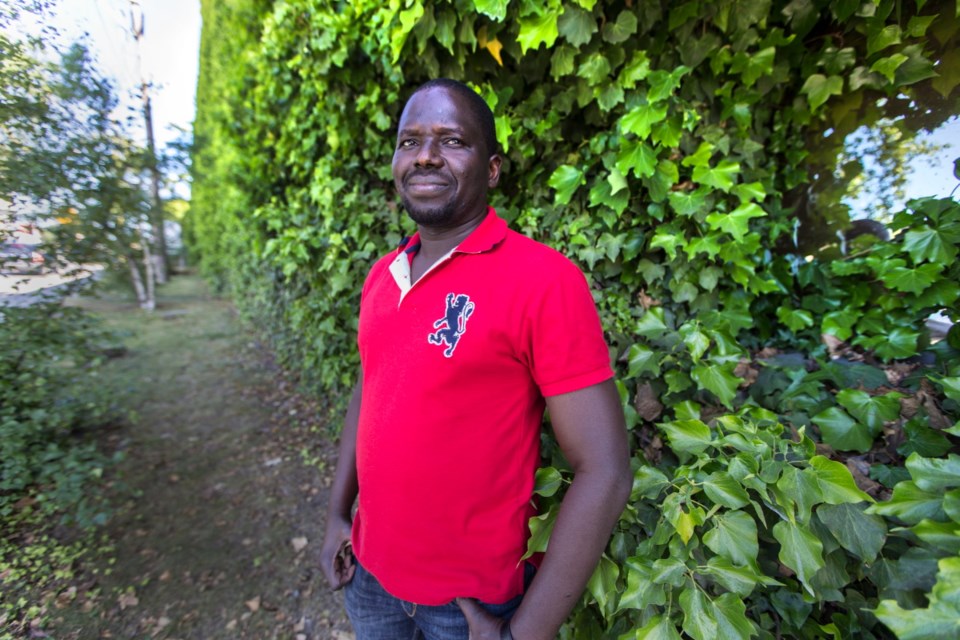Legal aid will no longer be provided to immigrants and refugees in B.C. due to a lack of funding, which immigration experts fear will put people at risk of deportation if their cases proceed without a lawyer.
Effective Aug. 1, the Legal Services Society of B.C. will not accept applications for immigration and refugee cases because government funding has not kept pace with the dramatic increase in refugee claims. The society’s executive director, Mark Benton, said unless the society receives an additional $1 million in federal funding, vulnerable individuals who have already experienced trauma will be forced to represent themselves during complicated hearings in front of the Immigration and Refugee Board of Canada.
“There will be a real risk to people, and that’s our biggest concern,” Benton said. “When we talk about people who come from a different culture, who don’t have a Canadian standard of education, who are likely not to speak any English, and do not have a network of support, [not having a lawyer] puts them at risk of their case not being heard fully and they risk being returned to the country where they face persecution.”
Benton said so far in 2017, the society is handling an average of 110 cases a month.
About half of the society’s refugee clients come from Iraq, Afghanistan, Iran and Turkey, and about a quarter come from Central and South America.
The society’s board of directors has written letters to federal Immigration Minister Ahmed Hussen and Justice Minister Jody Wilson-Raybould explaining why additional funding is desperately needed.
The society receives $1.7 million annually for immigrant and refugee legal aid — $900,000 from the federal government and $800,000 from the provincial government. Last year, the society received an additional $530,000 from the federal government as a result of increased demand from refugee claimants.
The federal Department of Justice told the Times Colonist that next year it will provide $1.1 million to B.C. for immigrant and refugee legal aid, which Benton said is still dramatically short of what the society will need to provide those services.
Under the legal-aid system, immigrants and refugees who are eligible for legal assistance are connected with private lawyers, who are funded by the Legal Services Society.
Alfred Okot-Ochen, a refugee from Uganda who applied for asylum in Victoria in 2003, said he would not have been able to navigate the complicated paperwork without a lawyer funded by legal aid.
Okot-Ochen now works as a case manager at the Victoria Immigrant and Refugee Centre Society and often connects immigrants and refugees with legal aid.
“I’m very concerned [about the funding cuts] because I know I will always have clients who need legal aid,” he said.
For refugees who have made the arduous journey to Canada to apply for asylum, it’s a matter of life and death, said Chris Friesen, director of settlement services for the Vancouver-based Immigrant Services Society of B.C.
“Their inability to have legal counsel to help them navigate the complexity of applying for asylum really puts them at a significant disadvantage,” he said. If a person’s asylum application is rejected, they could face deportation and risk persecution or death in the country from which they fled.
David Lau, the Victoria Immigrant and Refugee Centre Society’s executive director, said it’s almost impossible for asylum seekers and refugees to represent themselves in front of the Immigration and Refugee Board of Canada because of language barriers and a complex bureaucratic process.
“If people don’t get legal supports, they get bad outcomes,” Lau said. “So it’s really pretty shocking.”
The society provided legal aid in 860 refugee cases in 2016/17, more than double the 350 cases handled in 2013/14.
B.C. has seen a major spike in refugee claimants crossing the Canada-U.S. border away from official border crossings, which many link to anti-immigration policies of U.S. President Donald Trump.
In 2013, 378 people made refugee claims in B.C. In 2016, that number rose to 725, according to figures compiled by the Immigrant Services Society. This year is set to outpace the year before, with an average of 100 refugee claimants arriving per month. Friesen noted these numbers do not represent all refugees, only those who seek settlement services. About 80 per cent of these refugee claimants entered by walking across the Canada-U.S. border.
Roberto Alberto, a Victoria criminal and family lawyer, said the effect of the legal-aid cuts “will be extremely detrimental.” Most of his cases are funded by legal aid, and many of them have immigration-law repercussions. He represents some immigrants who are accused of crimes, and in some cases, a criminal charge could lead to deportation.
Without legal aid, someone with limited financial means won’t be able to mount a robust legal defence.
“Most of the people who apply for legal aid are not in a position to afford a lawyer. But without one, it’s really difficult for them to advance their case,” Alberto said. “A lot of immigration files where they get legal aid have real potential for deportation.”
Cases approved before Aug. 1 or applications for legal aid filed before that date will not be affected by the cuts. A duty counsel will still be provided to people held in immigration detention at the Canada Border Services enforcement centre in Vancouver.
The Legal Services Society said it will “continue to provide online materials in multiple languages that help unrepresented clients understand the immigration and refugee hearing process and the steps they have to follow to maintain their claims.”



